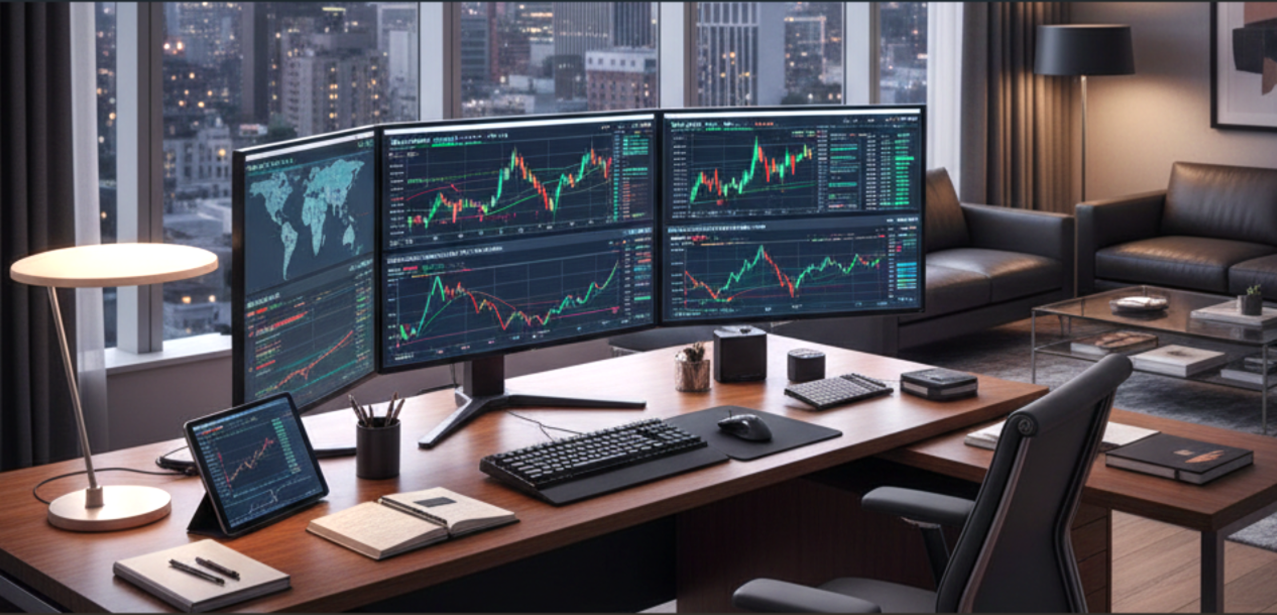
The hedge fund landscape experiences continuous transformations, due to shifts in underlying strategies, the assets considered and the constant creation of new funds. Conscious the dynamic nature of this sector, we consider hedge funds as an area worthy of investigation. Hence we set out to explore and periodically report on the most noticeable trends in this sector.
Below is an overview of the main events that occurred in the first half of November 2023.
Macro Hedge Funds excelled in volatile October
In the month of October, interest rates hit recent highs, and inflationary pressures persisted, while complex geopolitical risks spiked with the outbreak of conflict in Israel, that resulted in an uptick in volatility.
Despite the overall mixed hedge fund performance due to heightened volatility, in this period, Macro hedge funds excelled, led by fundamental and trading focused strategies. Also interest rate-sensitive strategies, fixed income based Relative Value Arbitrage strategies experienced positive performances, bringing the quarterly return to a gain of +4.2% and demonstrating strong defensive positioning and opportunistic trading. Managers, especially from large funds, stay aggressive, anticipating destabilizing dislocations.
The HFRI Macro (Asset Weighted) Index gained 0.7% in October, offsetting losses experienced by equity and event-driven funds. In fact, on the other side, equities and bonds, as most strategies in the sector, experienced declines. In addition to them, also equity hedge funds, which invest long and short across specialized sub-strategies (with negative contributions from Technology and Energy exposures) and event-driven strategies, which often focus on out-of-favour, deep value equity exposures and speculation on M&A situations, also experienced declines. The HFRI Fund Weighted Composite Index declined by -1.4%, leading to a 12.8% decrease of top/bottom performance dispersion.
Institutions, seeking both opportunity and defence, are likely to increase allocations to managers which have generated strong performance through these recent market headwinds, as highlighted by Kenneth J. Heinz, President of HFR.
This information is based on the articles analysed and reported by ThePlatform’s analysts team: https://alternativefundinsight.com/macro-leads-hedge-fund-returns-in-volatile-october/ and https://www.hfr.com/news/macro-relative-value-lead-hfri-in-october-as-geopolitical-interest-rate-risks-spike
Month in review: US equities slide hits hedge funds in October
In October, CTAs spent time adjusting to the US Federal Reserve’s “higher for longer” approach to interest rates, and, in addition to that, global macro funds have pivoted from the bullish equity bets to bearish positions. As a consequence, CTAs gave up most of their year-to-date gains in October as profitable fixed-income short gains were offset by mostly negative returns and losses in commodities and energy positions.
Data from PivotalPath revealed October is a period of portfolio de-risking by U.S portfolio managers, with a big decrease in directional bets.
A BNP Paribas survey revealed a difference between hedge fund investor performance expectations and the thinking of hedge fund managers. On one hand, investors, with the so called “risk-free rate” (higher than it was earlier in the year), have faith in hedge funds to generate higher returns, with average annual gains expected to reach 9.75% in 19 months. On the other hand, managers are more conservative and they expect to reach this level of return in a longer time.
Away from the US, according to data from Goldman Sachs, the recent worries about the issues concerning China’s economy led lots of hedge fund investors based in the United States to reduce their investments in Chinese stocks and to shift their focus towards Latin American countries in search of equity market value.
The article also highlighted the demise of Odey (Asset Management) wealth management subsidiaries continued throughout October: creditors commit to dissolve the business and at the end of the month, a statement on the Odey AM website confirmed the closure of the firm itself.
This information is based on the article of www.hedgeweek.com analysed and reported by ThePlatform’s analysts team: https://www.hedgeweek.com/month-in-review-us-equities-slide-hits-hedge-funds-in-october/ and https://alternativefundinsight.com/cta-returns-slip-in-october-turbulence/

Hedge funds up US stock buying at fastest pace seen in two years
The US Federal Reserve’s recent pause in interest rate rises prompted hedge funds to buy US stocks at the fastest pace seen in two years last week, according to a report by Reuters. The report reveals that global traders have “aggressively” acquired US equities in the week up to 3 November, building bearish positions to the highest level in nearly five years: Financials was the most net sold sector on the U.S prime book in seven weeks, driven entirely by short sales.
Despite the increasing buying activity has boosted major US stock market indexes (S&P 500 and Nasdaq), some funds had to renounce their short positions as rising stock prices made them too expensive to hold. According to a Goldman Sachs’s report, at the same time, occurred the most notable surge in hedge fund long positions in eight months, with a strong investor preference for technology-related assets.
The ratio between long and short positions is at a historical low, below 1.7 times, compared to one registered at the beginning of this year, that was at 2.6 times.
This information is based on the article of www.hedgeweek.com analysed and reported by ThePlatform’s analysts team: https://www.hedgeweek.com/hedge-funds-up-us-stock-buying-at-fastest-pace-seen-in-two-years/
Hedge funds up tech stock bets
It appears that hedge funds such as Tiger Global Management, Pershing Square, and Third Point are doubling down on big technology stocks, despite a slight stumble in the sector during the third quarter. These speculative positions showcase increased interests in tech giants like Amazon, Microsoft and Meta Platforms. Notably, Tiger Global Management’s strategic adjustments, including a substantial boost in its Nvidia holding and increased bets on Alphabet, Meta, Microsoft, and Amazon, underscore a continued bullish outlook on the tech sector. This trend across various hedge funds suggests confidence in the resilience and growth potential of major tech players, despite recent market fluctuations.
However, we note that these long positions are not that surprising all things considered. Both the FED and ECB have paused their interest rate hikes as inflation is decreasing at a fast rate, even though it is forecasted above the target level of 2% for the year 2024. This more stable macroeconomic environment is likely to create a favourable condition for those stocks, such as tech ones, that are more vulnerable and more volatile in periods of economic uncertainty.
Furthermore, the role of AI will increasingly become central in our societies. Consequently, the market for Gen AI services is likely going to increase. Many fear the impact that the transformational growth around AI can have a disruptive effect on the market and on society in general and, hence create a source of risk and unpredictability in financial markets. Whilst these fears may be founded, we believe that the cautious optimism around the tech sector, manifested by huge speculative bets taken by hedge funds, is more than justified.
This information is based on the article of www.hedgeweek.com analysed and reported by ThePlatform’s analysts team: https://www.hedgeweek.com/hedge-funds-up-tech-stock-bets/
Hedge funds help fill central bank bond-buying gap
Hedge funds are playing a pivotal role in enhancing liquidity within European government bond markets, stepping in to address a void created by a reduction in central bank activity.
Both the ECB and the Bank of England have either scaled back their bond-buying activities or divested from bonds.
On the contrary, as noted during a panel discussion at the Association for Financial Markets in Europe’s (AFME) conference in Brussels, by Thomas Weinberg, Head of Trading and Issuance at Germany’s debt management agency, “We have seen a rise of hedge fund activity, which may have replaced or surpassed ECB buying for whatever reason to go into the fixed income market.” Weinberg highlighted that hedge funds now contribute to approximately 40% of the turnover in German securities.
The fact that hedge funds are now major players in the turnover of German securities suggests a changing dynamic in the fixed income market, with implications for liquidity and trading patterns. As central banks recalibrate their strategies, the role of hedge funds in maintaining liquidity gains prominence, shaping the trajectory of European government fixed income markets in a post-central bank-centric debt environment.
This information is based on the article of www.hedgeweek.com analysed and reported by ThePlatform’s analysts team: https://www.hedgeweek.com/hedge-funds-help-fill-central-bank-bond-buying-gap/
Gaurav Grover is shutting down his Hong Kong-based hedge fund firm Trikon Asset Management Ltd.
After having helped to set up Moore’s Asia office in Hong Kong in 2010 and covered the role of senior portfolio manager at Louis Bacon’s hedge fund firm, in 2018 Gaurav Grover started Trikon Asset Management Ltd., which was, at that time, one of the most promising startups.
Flat in its first two months of trading in 2018, the Trikon fund gained in the following three years. Only in 2022, it dropped to 1.3%, while in 2023, Trikon’s hedge fund was up 2.9% through August.
Despite that, Grover is shutting down his hedge fund firm after about five years. For this reason, the firm started to notify investors and counterparties about three weeks ago, even though there was client interest to expand its assets through other products.
According to a Eureka hedge Pte index, in 2022, about two-thirds of Asia-focused hedge funds had the worst annual loss since 2008, and this year they tried to make money again. Investors redeemed $7.5 billion out of Asia-based funds in the first nine months, more than triple the amount in 2022. Grover’s decision seems to be unrelated to the Asian stock markets landscape or recent geopolitical tensions, rather to the regulatory uncertainty in China and a slowdown of the world’s second-largest economy, that, combined with rising interest rates, break down regional hedge fund performance.
This information is based on the article of www.bloomberg.com analysed and reported by ThePlatform’s analysts team: https://www.bloomberg.com/news/articles/2023-11-13/moore-capital-alumnus-grover-closing-trikon-hong-kong-hedge-fund-firm
Join ThePlatform to have full access to all analysis and content: https://www.theplatform.finance/registration/
Disclaimer: https://www.theplatform.finance/website-disclaimer/



